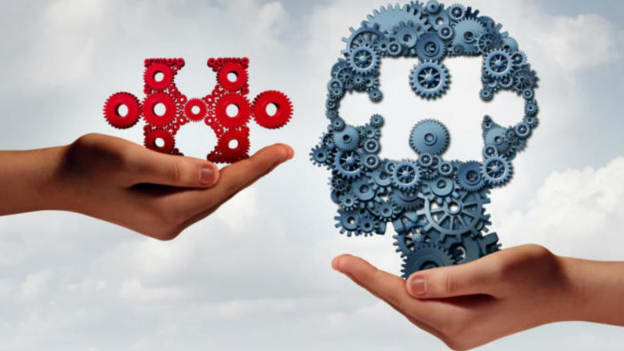Do inclusive workplaces mean mental/emotional well-being for employees?

In the face of the pandemic, Corporate India saw two workplace realities become front and centre like never before – the need for inclusion and a focus on the mental health of employees. I believe it’s no coincidence that these have climbed the priority charts for companies ever since. Inclusive workplaces go a long way in enabling and improving the emotional wellbeing of employees, particularly in the backdrop of the alienation and stress caused by the pandemic.
Let me deconstruct workplace inclusivity into three key components, in order to reiterate this strong causal relationship – Respect, Empathy and Psychological Safety. Exploring the impact of each of these elements on employee mental health is likely to add up to the totality of its impact.
Respect
While we all come to the workplace in a certain professional capacity, we expect to be respected as both – the professional as well as the person that we are. Erstwhile organisations laid more importance on respect for the employee as a professional, and any element of respect for the individual was largely left to the personal equation amongst the employees. However, today personal respect is becoming just as important. A term such as ‘respect’ that never got much airtime earlier, is now something that employees are having to rethink - What does respect mean at the workplace? What might be the difference between respecting someone and being respectful of someone? A respectful work environment keeps unnecessary stresses such as insensitive comments, disrespectful banter, exclusion, bullying etc. at bay. A respectful workplace is thus a key enabler for employees’ positive mental health.
Empathy
Not enough can be said about the impact of workplace empathy on mental health. The pandemic saw phases where organisations brought business to almost a complete halt in order to care and provide for employees who were struggling on their personal front. Managers, leaders, peers alike were there for each other as their collective wellness – physical and mental – took one blow after another. This has now set a very high bar for employers in terms of demonstrating empathy. When it comes down to dealing with a mental health issue, there are always early warning signs that exist. The question then is whether these signs are caught by anyone at work, particularly the manager. More often than not these go unnoticed. Being overburdened with work is known to significantly compromise our ability to empathise. Do we check in with employees who seem to suddenly be distancing/isolating themselves from others or whose performance drops for no evident reason? Empathy will set up workplaces to not only pick these up but also facilitate meaningful conversations with those dealing with a mental health issue.
MORE FOR YOU...
- #LeadersSpeak: Rapid-Fire with Narinder Kapoor of HPE
- #LeadersSpeak: Rapid-Fire with Ben Elliott of Experian
Psychological Safety
Progressive organisations are encouraging employees to bring their whole selves to work, without having to hold back their defining identities such as gender, sexual orientation, disability etc.. But these are also going to make some employees more vulnerable at the workplace, more prone to micro-inequities and aggressions. All of which is likely to take a toll on employees’ mental health. Needless to say, under-represented groups have more at stake here than others. Providing a psychologically safe workplace allows employees to be who they are, including being their vulnerable self, without the fear of ridicule or rejection. Mental health issues could often stem from what employees are going through in their personal lives – a divorce, financial instability, child struggling with addiction - many of which run the risk of stigmatisation. A psychologically safe space not only allows employees to be honest about their personal situation, but it also allows them to fully embrace the emotions that they may be experiencing. It gives them a safe space to seek help and have a real shot at holistic wellbeing.
WHO states this as a fact: Work is good for mental health but a negative working environment can lead to physical and mental health problems. Add to this an unequal world, and the problem only compounds. Mental Health in an unequal world is a reminder that some are more impacted and vulnerable than others, that some have lesser access to healthcare than others and that some are more hesitant than others to seek help. Workplaces too are an unequal world, and Inclusivity can start to significantly change that for the better.
This article was first published in November 2021.
















